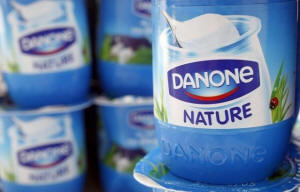|
Dutch firm Avantium to IPO to fund
plastics from plants
 Send a link to a friend
Send a link to a friend
 [October 13, 2016]
By Ludwig Burger and Arno Schuetze [October 13, 2016]
By Ludwig Burger and Arno Schuetze
FRANKFURT (Reuters) - Dutch chemical
technology firm Avantium will announce an initial public offering (IPO)
this week to fund production of plant-based plastics for Coca Cola
bottles and Danone yoghurt cups, two people familiar with the plan told
Reuters.
Avantium, which earlier tried to float in 2007, and Germany's BASF said
last week they would set up a joint venture and build a facility to
produce chemical building blocks from plant-based sugars.
The planned market debut comes as uncertainty over China's growth and
Britain's Brexit vote have led to jittery markets. Two European
companies -- UK gym operator Pure Gym and German real estate company
OfficeFirst -- canceled plans to IPO on Tuesday due to unfavorable
conditions.
Avantium - which counts Dutch bank ING, Coca Cola, Danone and various
venture capital firms among its owners - plans to raise more than 100
million euros ($112 million) from new shares, valuing the group at up to
300 million euros, one of the sources said.

The proceeds from the Amsterdam IPO, which will be managed by ING and
KBC, will foot Avantium's share of the costs of setting up the new
facility, the sources said.
Avantium and ING declined to comment, while KBC was not immediately
available for comment.
Spun off from Royal Dutch Shell in 2000, Avantium has developed a
chemical production procedure that feeds on fructose from plants rather
than conventional oil derivatives.
Cost has been a major hurdle to renewable plastics becoming mainstream,
but Avantium says its method is cost-competitive.
[to top of second column] |

Yoghurt by French foods group Danone is seen in this photo
illustration shot in Strasbourg, April 15, 2015. REUTERS/Vincent
Kessler/File Photo

Its process yields a chemical building block which can be further
processed into a bioplastic that the company says is more robust
than the widely used PET and can also be used in textiles as well as
electronics and automotive components.
The bioplastic, which will also be used by Mitsui Chemicals, can be
recycled by existing PET facilities.
While many consumers prefer renewable-labeled packaging, they are
only prepared to pay slightly more than the price of petroleum-based
equivalents, analysts say.
Developers of renewable plastics have long focused on genetically
engineered microbes that can ferment carbohydrates from plants into
chemical building blocks, but non-biologic approaches based on
catalysts that enable chemical reactions, such as the one used by
Avantium, have also gained traction.
(Additional reporting by Toby Sterling in Amsterdam; Editing by
Georgina Prodhan and Alexander Smith)
[© 2016 Thomson Reuters. All rights
reserved.]
Copyright 2016 Reuters. All rights reserved. This material may not be published,
broadcast, rewritten or redistributed.
 |